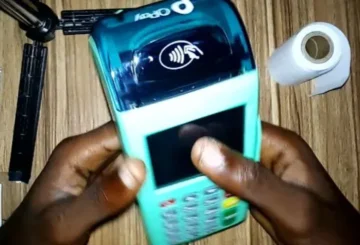
Following the introduction of the new diaspora forex remittances policy, the Central Bank of Nigeria (CBN) is targeting about $2billion monthly from diaspora remittances.
CBN governor Godwin Emefiele made this known at a press briefing on the new policy in Abuja on Thursday.
Using Pakistan as an example, Emefiele said, “if Nigeria is able to receive even if it is just $1billion monthly or moving close to $2billion monthly I’m so certain you all know what will happen to exchange rate in Nigeria”.
If the $2billion target is met Emefiele said he is certain “that after sometime deposit money banks will not have any need to begin to call on the CBN to provide dollar to fund their commercial operation so that is why we are saying that we want to aggressively take on this and see how this will help our economy”.
Emefiele then informed “Nigerians both at home and in the Diaspora, that the policy of recipients receiving their monies from abroad will kicks off today, December 4, 2020”.
Blocking any loopholes to manipulate the policy, the Central Bank of Nigeria (CBN) has ordered all Deposit Money Banks (DMBs) in the country to close all their Naira General Ledger through which the Naira remittances were hitherto being carried out.
The CBN said it took the decision following resistance from International Money Transfer Operators over its new decision on diaspora remittances.
According to Emefiele, “the CBN observed some pushback by some of the IMTOs who were bent on continuing their nefarious activities of undermining our policy by attempting to resist the new policies”.
As a result of the push back, the CBN on Wednesday, December 2, 2020, ordered that “all DMBs must close all Naira General Ledgers through which the Naira remittances were hitherto being carried out”.
To enable smooth implementation of the new policy on diaspora remittances, the CBN engaged commercial banks and major IMTOs “to ensure that recipients of remittance inflows are able to receive their funds in the designated foreign currency of their choice”.
Following the meeting between the CBN, DMBs and IMTOs “the stakeholders have agreed that they would deploy all the necessary tools to ensure that these measures become effective from Friday, December 4, 2020”.
All the IT systems of these IMTOs (Western Union, Moneygram and Ria services) and the DMBs he said “have been properly configured to begin remittance tomorrow, Friday, December 4, 2020”.
These new policy measures he added “would help in providing a more convenient channel for Nigerians in the Diaspora to remit funds back to Nigeria, as well as ensure that these funds can contribute to the overall development of our economy”.
Before taking the diaspora remittances decision, the CBN said itanalyzed data on IMTO inflows into the country over the past year, “and through our investigations discovered that some IMTOs, rather than compete on improving transaction volumes and create more efficient ways for Nigerians in the Diaspora to remit funds, resorted to engaging in arbitrage arrangements on the naira-dollar exchange rate, which to a large extent resulted in a significant drop in flows into the country”.
The activities of the IMTOs he added “also encouraged the use of unsafe unofficial channels, which also supported diversion of remittance flows meant for Nigeria, thereby undermining our Foreign Exchange management framework”.
As a result of these infractions, the Central Bank of Nigeria, on November 30, 2020, announced a new policy initiative “to boost remittance inflows and foster an environment that would enable faster, cheaper, and more convenient flow of remittances back to Nigeria”.
Asked if the policy will guard against money laundering, the CBN governor said “I want you to know that even from abroad where these funds are coming Western Union, Ria and Moneygram are properly licensed and regulated and I know for certain that institutions or countries where they are domiciled abroad would not allow money laundring practices or remittance of funds in those countries into our contry to be associated with money laundry”.
Here in Nigeria, the CBN governor said “those who will be receiving those funds will come with some form of identity card and today we even have BVN”.
“I am not saying that BVN is compulsory for you to collect dollars over the counter but I am saying there would be some form of identification that makes it easy for those who are receiving funds to receive their monies”.
He added that “banks have their Know Your Customer (KYC) and over time we will try and encourage situations where funds are flowing into the domiciliary account of the recipients, I belief money laundry issues would have been totally dealt with”.



